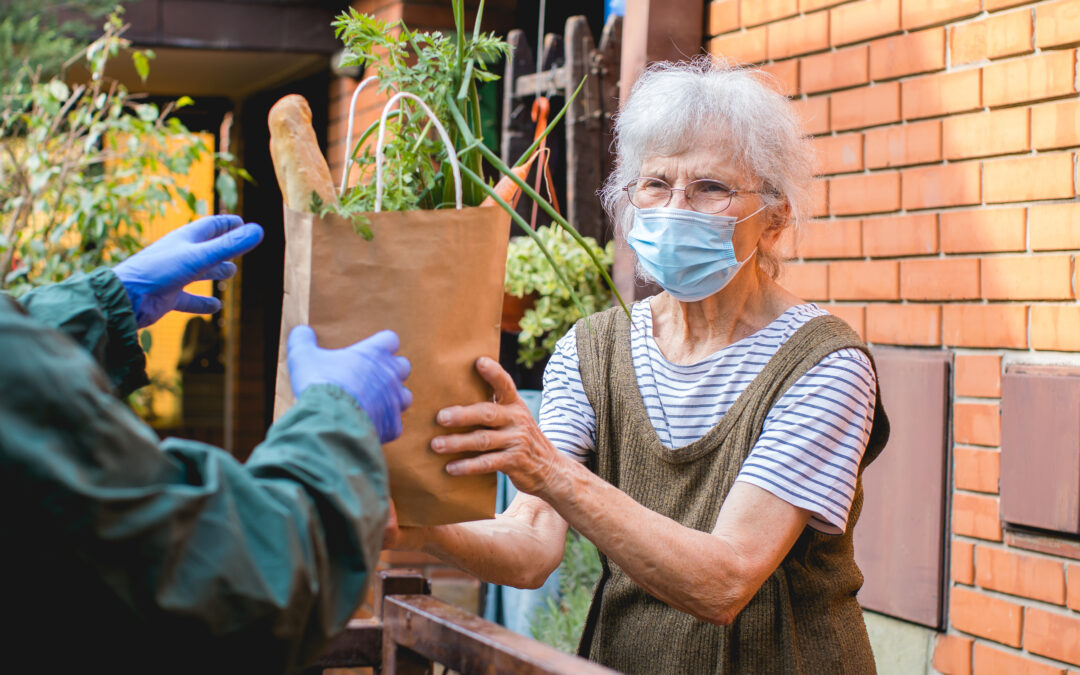Here’s how to boost nutrition while social distancing
(Reported in the Hamilton Spectator, July 28, 2020)
Anne Pizzacalla and Blair Makey
We are constantly hearing from aging friends and family that they don’t know what to cook or eat anymore! Sound familiar? Sheltering in place during the current pandemic has also complicated our relationship with food, including buying groceries, preparing meals and our rituals around the way we eat.
A nutrient rich diet is important to support our immune system and our ability to fight off bacterial and viral infections. There is no single food, supplement or vitamin that will do this. Many nutrients are involved with the normal functioning of the immune system and therefore eating a variety of nutrient rich healthy foods each day is key. Let food be your medicine!
Are you eating alone and missing those casual meet ups for lunch, coffee or more formal dinners? Breaking bread together is deeply embedded in our social DNA. Try an online dinner party, cook from the same menu and then share your thoughts on the recipes and food as you eat together in real time. The same virtual meal could be shared over the phone for those offline. If lack of motivation or fatigue are issues, try to cook when your energy is high, use simple healthy recipes with fewer ingredients and quick cooking time and double the recipe to freeze leftovers. If you really can’t summon the energy to cook, replace a meal with 2 or 3 easy and healthy snacks.
Getting those five to seven servings daily of fruit and vegetables is easier than you think. Add fruit to breakfast, a cup or two of salad and a vegetable for lunch, fruit at snack time and two more at dinner and you’ve more than reached your goal. Leave raw veggies on the counter top for snacking. Add veggies to everything; sauces, pizzas, soups, stews, casseroles and purees.
As you age, good nutrition is critical to maintaining good health, especially the following nutrients.
Protein is needed to build muscles and maintain strength. Protein is found in meat, fish, poultry, eggs, milk products, legumes, tofu, soy beverage, nuts, and seeds. We need 1gram of protein for every kilogram of weight.
Fibre
Fibre helps your bowels stay active and prevents constipation. Fibre can also help keep blood sugar (glucose) and blood cholesterol levels normal.
Fibre is found in plant foods, especially vegetables and fruits, whole grain products, nuts and seeds, and legumes. Women need 25 grams of fiber and men 30 grams.
Beans and peas also called legumes, are an excellent way to increase both our fiber and protein intake, and help with glucose and cholesterol regulation. The Pulse Canada website (pulsecanada.com) has excellent free recipes and ideas on how to enjoy beans in both old and new ways. Like veggies, beans can be added to everything! They have the added bonus of being budget friendly and having a long shelf life. Try organizing a virtual dinner or social distancing picnic around pulse-based dishes. You will also be contributing to sustainable agriculture.
Another frequent question is around vitamin supplements. Research to date does not support the use of large vitamin doses. However, three vitamins in particular are worthy of special attention. Calcium, Vitamin D and B12 are absorbed less efficiently as we age. Calcium is essential for healthy bones and Vit D helps you absorb the calcium. If you are spending less time outside these days, you may not be getting Vit D through the action of the sun on your skin. Both Calcium and Vit D are critical to preventing osteoporosis. Adults over the age of 50 need to eat foods fortified with vitamin B12 or take a daily multivitamin/mineral supplement containing vitamin B12. Consult with your health care provider, pharmacist or dietician around dosing.
Currently, there are no cases reported of COVID-19 being spread through food but we do avoid sharing utensils and dishes with people outside our household. Safe food handling practices are otherwise unchanged. They include handwashing before and after handling food. Cleaning and disinfecting food preparation surfaces. Use running water to wash fruits and vegetables. Soap, chlorine or other chemicals are not recommended.
Grocery shopping tips include selecting grocery stores that sanitize grocery cart handles, use the hand sanitizers, if available and wear a mask! Maintain physical distancing and avoid touching items you are not going to purchase. Before you go, organize your list to limit the amount of time you spend indoors.
Online payment or tap and go payment options should be used when possible. Ordering online can reduce the stress of in person shopping. Food can be dropped at the doorstep. Wash your hands after handling the items delivered and again after handling food and food packaging.
Individuals with specialized or complex dietary can consult a dietitian through your family doctor or specialist. Large grocery stores provide dietician services for a fee. Or visit Find a Dietitian. Resources on the net abound. The Canada Food Guide website has great resources including many delicious recipes. https://food-guide.canada.ca/
Resources
https://www.unlockfood.ca/en/Seniors
Eating Well with Canada’s Food Guide https://food-guide.canada.ca/en/
https://osteoporosis.ca/bone-health-osteoporosis/nutrition/nutrition/
Click here for the Hamilton Spectator article.

